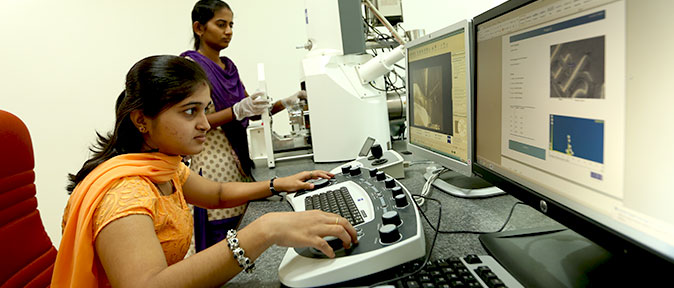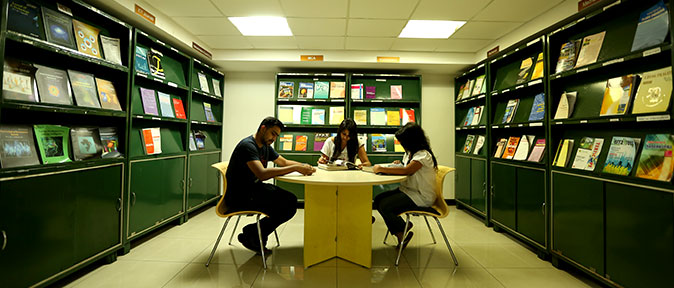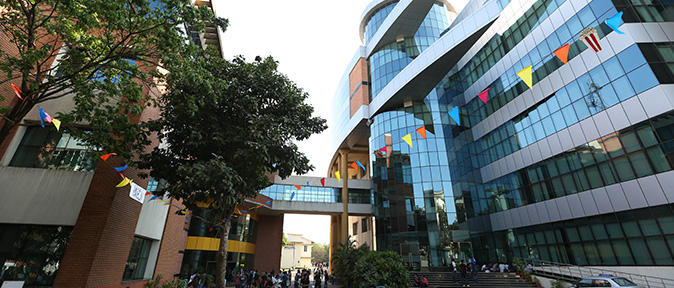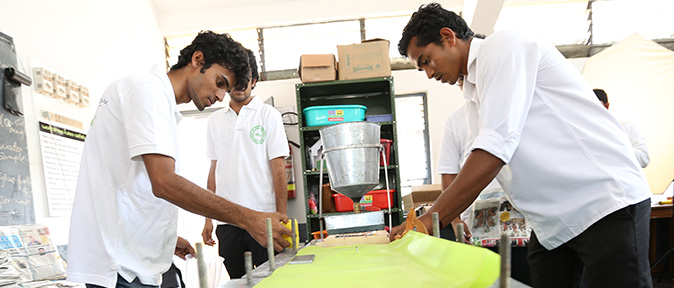Overview - Applied Computational Fluid Dynamics
The MTech Program in Applied Computational Fluid Dynamics is designed to cater to the increasing demand for CFD specialists having practical and technical knowledge. This course is developed mutually by a consortium called APPLY consisting of 11 Universities/agencies worldwide. This course will address the needs of graduates and engineers who wish to further their career prospects in the areas of computational fluid dynamics. The program would be of interest to engineers and scientists—both aspiring and professional—with aerospace/ mechanical/ automobile/ civil/ chemical engineering applications.
The objective of Applied Computational Fluid Dynamics is to develop and understand the fundamental principles of finite element method, and finite volume methods in analyzing and solving systems involving fluid flow with wide-ranging applications from aeronautical, automobile, environmental, and heat transfer. Graduates will develop the ability to solve multi-disciplinary problems and will be a part of future development in automotive industries with proficiency in design, analysis, manufacturing, and safety features. The course is spread across 4 semesters with the first and second semesters covering fundamental topics on computational fluid dynamics and applied subjects wherein the CFD is exclusively adopted. This is supported by practical hands-on experience in simulating flows using commercial software tools such as Ansys & Matlab which are in high industrial demand. The course is equipped with courses having applications in aerodynamics, heat transfer, environmental flows, biofluids, vehicle aerodynamics, and atmospheric flows.
PROGRAM EDUCATIONAL OBJECTIVES (PEOs):
PEO1: Apply modern computational, analytical, and simulation tools and the latest techniques to address the challenges faced in computational fluid dynamics and related engineering problems.
PEO2: Practice professional ethics, and effective communication, work in a team of multicultural environments and contribute to improving and sustaining the green environment.
PEO3: Get employed as successful engineers in relevant engineering streams, become entrepreneurs and pursue higher studies.
PROGRAM OUTCOMES (POs):
POs essentially indicate what the students can do from subject-wise knowledge acquired by them during the program. The POs define the professional profile of a graduate of the PG Engineering Program
PO1: An ability to independently carry out research /investigation and development work to solve practical problems.
PO2: An ability to write and present a substantial technical report/document.
PO3: Students should be able to demonstrate a degree of mastery over the area as per the specialization of the program. The mastery should be at a level higher than the requirements in the appropriate bachelor's program.
Course Outline - MTech Applied Computational Fluid Dynamics
Click Here for the Program Brochure
Duration
2 Years (4 Semesters)
Important Links
Facilities

Laboratories
World-class laboratories give learning a practical dimension

Libraries
Libraries have excellent resources for reference and study

Computing Facility
Wi-fi campus with modern computing and digital facilities

Innovation Centre
State-of-the-art Innovation Centre to facilitate multi-disciplinary research

MUTBI
Paper tree - A green initiative by MIT students of MUTBI
Key Dates & Deadlines
15
Mar 15 26
Mar ' 26
Last date to Apply
'
Tentative Course Commencement Date
Indian Students Apply
Manipal Academy of Higher Education not only caters to one’s academic needs, but also lays emphasis on all-round development of its students.
International Students Apply
Manipal Academy of Higher Education not only caters to one’s academic needs, but also lays emphasis on all-round development of its students.
Indian Students Apply
Manipal Academy of Higher Education not only caters to one’s academic needs, but also lays emphasis on all-round development of its students.
International Students Apply
Manipal Academy of Higher Education not only caters to one’s academic needs, but also lays emphasis on all-round development of its students.
![Program]() Program
Program
![Program]() News
News
- “Bad practice in Medicine must be rooted out,” World Medical Education President Prof David Gordon tells graduating students
- “Bad practice in Medicine must be rooted out,” World Medical Education President Prof David Gordon tells graduating students
- “Bad practice in Medicine must be rooted out,” World Medical Education President Prof David Gordon tells graduating students
